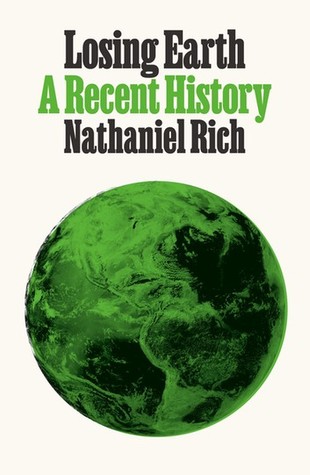
Losing Earth
A Recent History
کتاب های مرتبط
- اطلاعات
- نقد و بررسی
- دیدگاه کاربران
نقد و بررسی

February 1, 2019
The time to have averted worldwide climate change was long ago--and scientists knew that very fact a long time ago as well.As New York Times Magazine writer at large Rich (King Zeno, 2017, etc.) notes at the beginning, "nearly everything we understand about global warming was understood in 1979." Indeed, that understanding was largely unclouded by oppositional politics in a time when the president was not proud to proclaim that he was too smart to believe in climate change. The scientific consensus, then as now, was that human activities had altered the environment; the question was what could be done about it. Today, Rich notes, the odds of doing anything meaningful to slow climate change to an overall average warming of "only" 2 degrees Celsius are slim--about one in 20, he reckons, and even that will mean the extinction of coral reefs, rising sea levels, coastal flooding, and a host of other woes. Rich charts that 1979 terminus to a government study of coal emissions, which, if allowed to continue unmodified, would result in "significant and damaging" changes in the atmosphere. Other federal reports of the period were just as prescient--e.g., one that "warned that humanity's fossil fuel habit would lead inexorably to a host of 'intolerable' and 'irreversible' disasters" while recommending the transition to renewal energy sources. Big money buried these findings, along with a leadership that was reluctant to "change the national model of energy production" and, indeed, the world economy. By Ronald Reagan's time, the reluctance became intransigence. By the time of George W. Bush, business and government leaders had "consolidated behind the position that the benefits of emissions cuts should be weighed against immediate economic costs." By today, Rich warns, "the distant perils of climate change are no longer very distant"--and they grow closer every day.A maddening book full of what-ifs and the haunting suspicion that if treated as a political problem and not as a matter of life and death, climate change will cook everyone's geese.
COPYRIGHT(2019) Kirkus Reviews, ALL RIGHTS RESERVED.

Starred review from March 15, 2019
Rich, a novelist (King Zeno, 2018) and journalist, turns his widely discussed 2018 investigation for the New York Times Magazine into an exceedingly well-written history of the early political battles over addressing climate change. This is, in fact, a must-read handbook for everyone concerned about our planet's future. Readers will gain invaluable insights from Rich's exemplary reportage, and he also provides a road map for avoiding past missteps. This meticulous account of myriad missed opportunities to do the right thing for the environment and humanity over the past four decades is truly galling. Rich shows how political weakness, unfounded economic fear, and relentless preference for willful ignorance over thoughtful action dominated the approach to the threat of global warming during the 1980s. He tracks the birth of climate denialism and addresses how and why the fossil-fuel industry turned against science, and politicians went along with it. Nearly every conversation that we have in 2019 about climate change was being held in 1979, he writes. By taking readers into the meetings and among the players, Rich shines a necessary light on the predominant issue of our time. Losing Earth is eloquent, devastating, and crucial.(Reprinted with permission of Booklist, copyright 2019, American Library Association.)

























دیدگاه کاربران